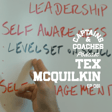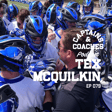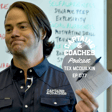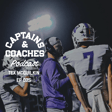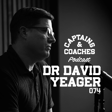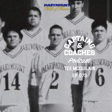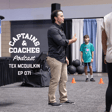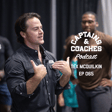
016 - One Last Job w/ Luke Summers
Get your popcorn ready and cue Wiz Khalifa for one last job with a couple of Old Bulls. Tex sits down with Luke Summers to drop some knowledge bombs they've picked up in their 12-year journey together. 500 podcasts, that's the number, not to mention hundreds of seminars across 6 continents, and enough Fast & Furious movies to make family mean everything.
Through personal stories and evidence-based wisdom, they unpack how understanding child development transforms both coaching and leadership. Learn the power of praise and the art of building confidence through recognition – tools that reshape the trajectory of athletes and professionals alike.
Training Program - 7 Day Free Trial Old Bull: https://bit.ly/old-bull-train
Grab a Corona for the last chunk of the show for an exclusive clip from their unreleased 2019 movie podcast project. This one's for the family.
#CaptainsandCoaches #childevelopment #MovementCulture #LeadershipDevelopment #CoachingLife #HumanDevelopment #StrengthAndWisdom #PowerOfPraise #MindfulCoaching #MovementWisdom #FamilyOverEverything #LastRide #PowerAthlete #KidStrong #gonein60seconds


